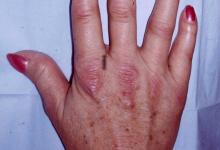Rheumatologist's Vacation Checklist Save

Editor's note: this originally appeared here at RheumNow on July 4, 2016 - and it bears repeating!
Vacations are not optional – they’re essential.
Hopefully, you’re able to enjoy a long holiday weekend, or even more vacation time during this holiday. Surely you’ve heard the research about how bad most Americans are at taking vacation compared to the rest of the world. Nearly half of all available vacation days go unused and over 40% of Americans failed to use any vacation days in 2015. Common sense says that taking more time off (not less) is likely to lead to increased work productivity.
A 2012 Medscape physician lifestyle report showed half of all physicians take 2-4 weeks’ vacation per year and that many (internists, surgeons, FP and emergency medicine) docs only take 1-2 weeks annually. HINT: the majority of physicians prefer international travel or beach vacations.
Do’s
- Plan in advance (meaning more than 6 months ahead of time) to use every day of allotted vacation time. Map out your annual vacations just as you plan for your new office growth. Use it or lose it.
- Clear all undone work (calls, signoffs, labs reviews) before you leave; leave assigned tasks to those you can entrust your patients to.
- Put mail and newspapers on hold. Same for work, voicemail and personal email – “I will be temporarily unavailable between (date now) and (date later) and will not respond to your [voicemail or email]. If this is an emergency you can….. (Call your PCP, go the emergency department, contact my assistant at ###-###-####). In Gmail this is done under Google rules.
- Carry a stash of items/meds that will save the day for others – a Z-pak, Cipro, band aids, 30 tabs of 5 mg prednisone, hair gel, alcohol preps, and povidone pads. Did you know that over 60% of travelers “get sick” during their vacations? The most common illnesses include motion sickness, allergies, sunburn, GI problems and food poisoning.
- If you have medical problems: a) see your physician before you go; b) know the medical options at your destination (clinics, hospitals, on-call doctors).
- Get someone to drive you or use Uber to and from the airport – it's way cheaper and stress free compared with all other options.
- Think big when traveling local; go small and focused when traveling global.
- Only pack enough for your travels, learn how to pack, never check luggage – learn how to reuse, rewear, wash, throw-away and buy new if need be. I haven’t checked a piece of luggage in the last 40 years. One carry-on for a two week vacation is easy, if you know what you’re doing.
- If you have a passport and plan to go international – invest the $100 and get a global entry card which grants you permanent TSA Pre-check status.
- Squeeze in small vacations on top of medical meetings, especially if you’re traveling to a new or interesting place. Arrive a day or two early or leave a day or two later. Plan where you will go and where you will dine.
- Travel with others – family, mate, friends, clubs, and church groups – always makes the trip more memorable. Why not plan your annual mancation, girls cruise, and book club bonanza?
- Learn how to relax. Do something that’s good for your psyche and physique. Learn a new skill, read a new book, volunteer, find religion, spend some money, etc. Vacation should have no fear.
- Tell others your return date is the day after you actually do. Use that extra day to regroup and get caught up before you hit the ground running on your return to work.
- Check with Dr. Len Calabrese on what wine you should experience while on the road! Or, better yet, let him know of your wine tales for him to include in his "Wine and the Rheumatologist" series.
Don’ts
- Accept any job that doesn’t provide education time and separate vacation time (minimum 3 weeks per year).
- Don't manage your office, patients and homegrown crises while on vacation – those tasks are called “work” and you’re supposed to be on vacation.
- Don't delay seeing critical, unstable or unresolved patient issues until you return. Best to resolve the tough stuff before you depart.
- Go unplugged as much as possible. Do yourself, family and friends a grand favor and turn off the emails, texts, calls, etc.; they can survive without you. Text messaging is the most insidious threat to your vacation. If you must, allot only 1 hour for “office work” while you're away and do it very early or very late in the day such that your vacation and family time is not compromised.
- With TSA and gate agents, do not use the line, “Don’t you know who I am” as it will most certainly be met with a “yes” and either “the doctor who missed his trip” or “the doctor going to Paris, France while his/her luggage went to Paris, Texas”.
- Avoid jet lag by not drinking alcohol, only plenty of water while on planes. Eat your dinner as early in the flight as possible, pass on the movies or “catch up work”, go to sleep (+ sleep aid) and wake up at your destination and hit the ground running and don’t go to sleep until nightfall.
- Don’t bother carrying a stethoscope – the odds of a rheumatologist discovering a pericardial rub or carotid bruit at 35,000 feet are the same as your giving the princess of Monaco a life-saving Heimlich.
- Don't eat at "fast food" junkeries. McDonalds and Subway shouldnt be on any vacation list, but are a handy hygiene stop when needed!
The terms “available, accessible and dedicated” are best devoted to family/self, more so than the job.
Do you want your epitaph to say, he/she was the job?
Work hard, play fair, do the right thing, and enjoy your professional life with a well-deserved vacation this week and at least 3 more vacations this year.
Do you have any "vacation tips or wisdom" for your colleagues? Please share your wisdom and experience.
(P.S. My friends and family can attest to the fact that all of the above are born of my many mistakes and lessons learned while traveling nearly 4 million miles over the last 32 years.)









If you are a health practitioner, you may Login/Register to comment.
Due to the nature of these comment forums, only health practitioners are allowed to comment at this time.